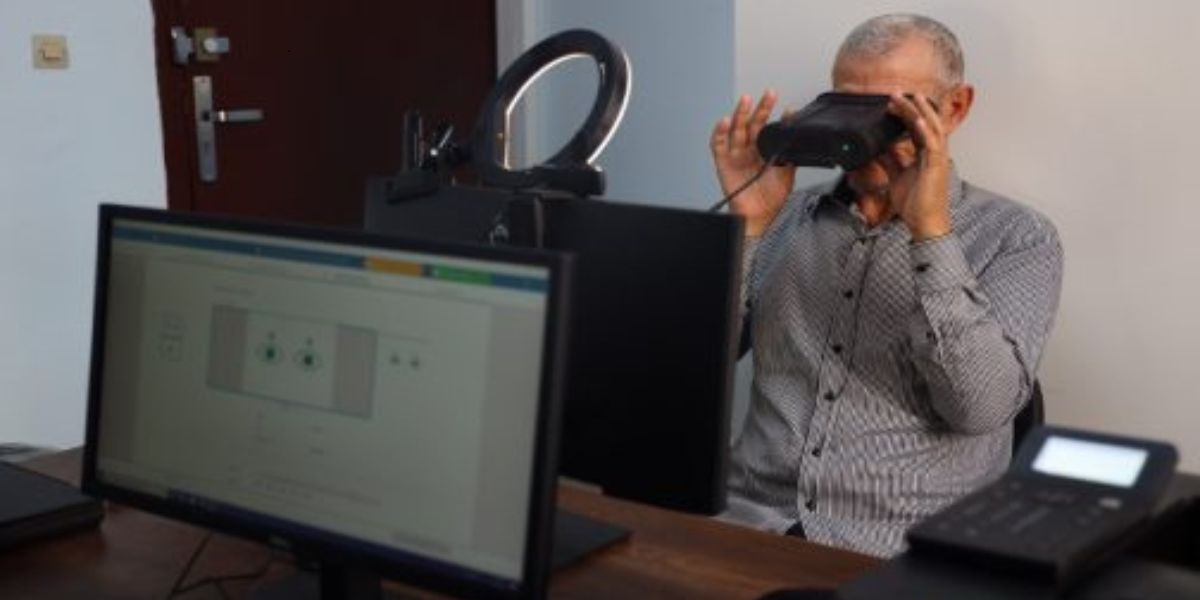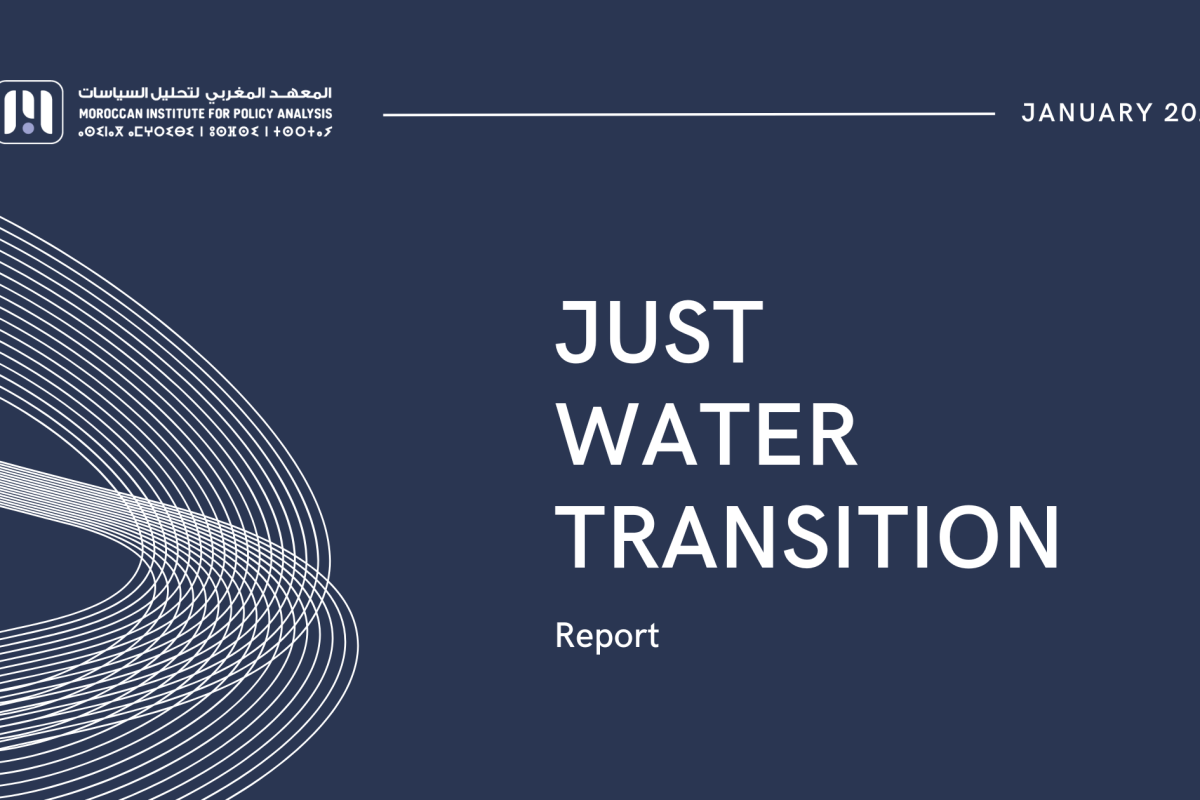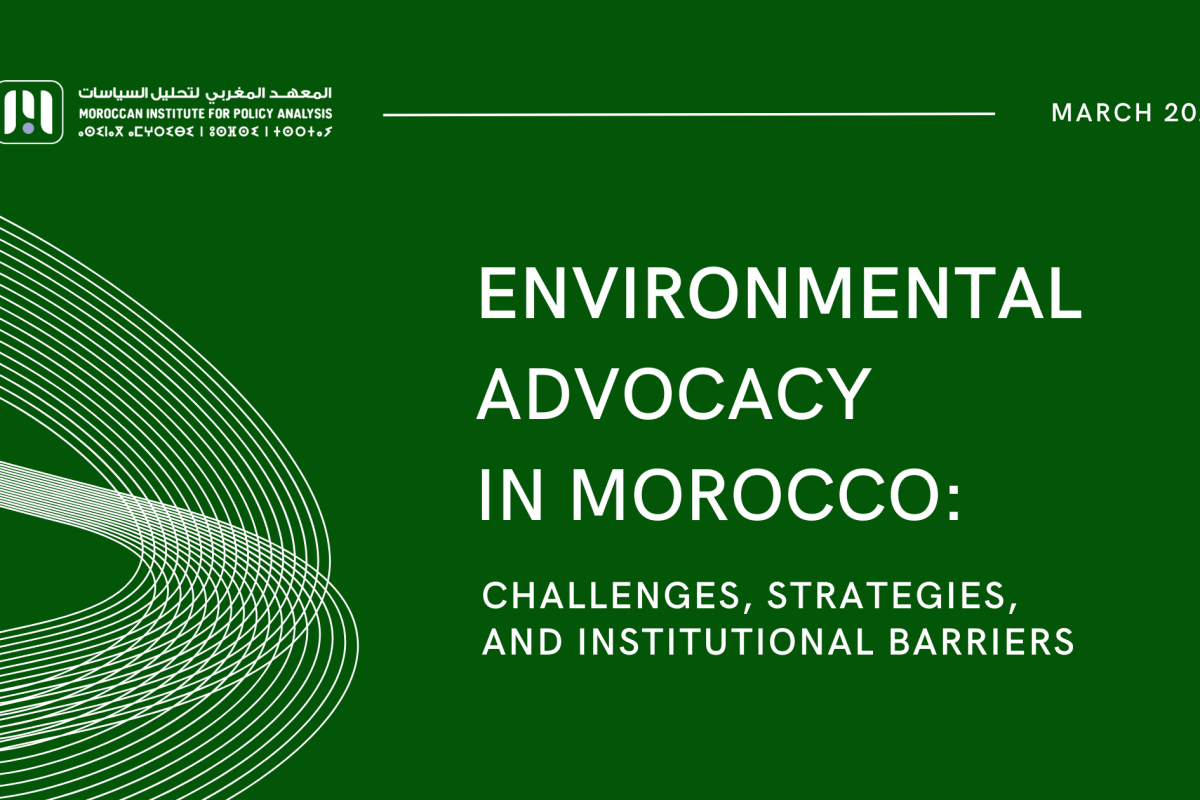[vc_row][vc_column][vc_column_text]
The plan to liberalize the Moroccan Dirham (MAD) has repeatedly faltered due to speculation by the Moroccan banks, which indicates their distrust in the country’s Moroccan economic institutions.
Download article
Introduction
In April 2016, Morocco’s Central Bank, known as Bank Al-Maghrib, announced the adoption of a plan to transition from the fixed exchange rate, in which the Moroccan Dirham is pegged to a two-currency basket that is weighted 60 percent to the Euro and 40 percent to the US Dollar, toward a floating exchange rate. Bank Al-Maghrib’s currency reform plan consists of three stages. The first stage, which was supposed to be launched by June 2017, would widen the Dirham’s trading band under the supervision of the Central Bank, while the second stage would see gradual adjustements to the value of the Dirham according to the law of supply and demand in the monetary market, with limited supervision from the Central Bank. The third and final stage would then see a full liberalization of the Moroccan Dirham. Although the Central Bank did not announce a specific timeframe, forecasts suggest that the complete liberalization process could take up to 15 years1.
Although Bank Al-Maghrib was determined to launch this project in June of 2017, it hesitated at the last minute due speculation by Morocco’s commercial banks in the weeks before the start of the first stage of liberalization. This speculation dried up the cash market for foreign reserves and threatened to send the value of the Dirham plummeting once the margin of exchange was expanded. On Friday, January 12, 2018, Bank Al-Maghrib and the Ministry of Finance jointly announced a second attempt at the implementation of the plan. The announcement came just ahead of a national holiday followed by a weekend, thereby leaving no chance for speculation in the currency market, a move which illustrated Moroccan officials’ fears regarding the risks related to the implementation of this new policy.
At first glance, macroeconomic indicators give the impression that the economic climate in Morocco is suitable for the implementation of the new exchange rate policy. In fact, the country’s inflation rate is relatively low (at less than 1.8 per cent), foreign reserves are sufficient to cover the needs of the Moroccan economy for more than six months2, the budget deficit is low, and Moroccan banks are in a favorable position, having reported positive financial results over the past years.3 If the Central Bank’s early preparations for implementation are also taken into consideration,4 the indicators suggest the makings of a successful policy.
Why, then, did the plan to liberalize the Moroccan Dirham falter?
Postponement, with the Taste of Failure
Less than a week before the June 2017 deadline, Bank Al-Maghrib abruptly announced the postponement of the MAD’s liberalization indefinitely. A few days prior, the Central Bank hinted implicitly that Morocco’s commercial banks stood accused of speculating in the currency market in the previous weeks through large purchases of hard currency stocks from the national money market. In all, Moroccan banks were estimated to have increased their foreign currency assets to over 40 billion MAD (approximately $4 billion) as they awaited the liberalization of the Dirham. The banks’ large-scale speculation in the foreign exchange market led to a shortage of liquidity. At the same time, banks refused to provide Moroccan importers with the necessary liquidity to finance their purchases from overseas markets.
While Moroccos’ commercial banks did not violate any market speculation laws, their conduct reflected an unbridled desire to secure a rapid profit after the Dirham was liberalized, an expectation based on the assumption that the Dirham’s value would decline relative to foreign currencies in the short and medium run. To maximize their benefits, banks made broad speculations to fill their coffers with foreign currency in order to take advantage of their high value against the floating Dirham, and at the same time avoid financial losses stemming from the Dirham’s depreciation.
Bank Al-Maghrib, meanwhile, expected that the country’s commercial banks to act in a manner consistent with the rules of the game. Commercial banks were therefore not expected to dry the market of the hard currency that would prop up the value of the partially liberalized Dirham. Although Bank Al-Maghrib believed that the banks had confidence in the strength of the Moroccan Dirham and the country’s economic institutions, their conduct indicated otherwise; a reality that has long been papered over with reassuring political rhetoric, like trying to cover the sun with a sieve.
Trust in Institutions
Despite the institutional independence that Bank Al-Maghrib enjoys, the government’s executive authorities defended its strategy with respect to the new exchange policy5 and repeatedly affirmed the Ministry of Finance’s support for its decisions, including that to postpone the liberalization project.6 The government’s support for the postponement in particular, is consistent with its desire to maintain the stability of macro-economic balances and reflective of its fear that the Dirham’s liberalization would decrease citizens’ purchasing power and bring about social unrest, especially in light of the protests that began in Al Hoceima in 2016.
Despite the government’s support, the Central Bank’s policy failed due to a gap between its expectations of Morocco’s commercial banks and their calculations, which imply a mistrust between the two parties and a lack of confidence on the part of the banks in the economic infrustructure of which they are a part. All of this points to the deeper problem of citizens’s mistrust in the country’s economic and political institutions and reveals the fragility of those institutions and the rules that govern economy, state and society.
In addition to the internal trust deficit, Egypt’s rocky experience in liberalizaing the Egyptian Pound also served to reinforce the fears of citizens and banks alike. In 2017, the Egyptian government’s poor implementation strategy led to a substantive devaluation of the Pound in the exchange market and brought about high levels of inflation. News of Egypt’s economic woes dominated headlines for several months, muddying the waters for any currency liberalization projects across the region.
The failed Egyptian model confirmed a lesson for Morocco: that trust in institutions, and in their strength and soundness, is critical to the success of any economic reform project. But as a result of the uncertain political and economic climate that faced the country during 2016 and 2017, Morocco’s political institutions grew weaker, leading to skepticism on behalf of bankers and fear on the part of citizens who worried about the implementation of the new currency policy. In short, the state had set these reforms up for failure before they had even been enacted.
While the fragility of political and economic institutions is not new to the MENA region, it is not usually considered seriously as a cause for ongoing economic failures. Arguably, one of the main reasons for the failure of most economic reforms in recent decades has been the ruling elites’s desire to control political and economic institutions and tame them to serve their class interests, rather than those of citizens and independent investors. As a result, trust is shaken and the credibility of economic institutions is eroded by the interests of the elites and the “crony-capitalism” that has taken root in most of these economies, which have come to be characterized by high poverty rates and large social disparities.
Morocco has not been an exception to this rule. Although the Kingdom has enjoyed relative stability since 2011, its political and economic institutions remain fragile, which helps to explain the banks’ misgivings towards the new exchange policy. The behavior of Morocco’s commercial banks reflects a crisis of confidence in the health of the national economy, which in turn points to a broader, systemic institutional fragility.
A number of international reports confirm this reality. The strength of Morocco’s instititions has been in decline over the past two dacades. In addition to the slow pace of institutional reforms, the Kingdom has also registered declines on a number of indicators including those pertaining to anti-corruption and protections for property rights, underscoring doubts about the commitment to institutional reforms in the country. For example, Morocco registered a 30 point decline on an index measuring institutions’ ability to protect private property between 1995 and 2016 and was one of the few countries to show a deterioration on this front between 1980 and 2016, according to the Heritage Foundation.7 This decline may explain Morocco’s limited ability to attract foreign investment, as well as the slow pace of domestic investment. After all, the inability of laws and institutions to protect private property and prevent violations of property rights disrupts economic dynamism as a whole.
Trust in the economy has also been challenged by the systematic corruption that continues to tarnish the country’s administrative, economic and political institutions. Transparency International’s indicators revealed a decline in the Corruption Perception Index in Morocco, which fell from a rank 72 in 2007 to 90 out of 176 countries worldwide in 2016. The Heritage Foundation confirmed the same trend as the Anti-Corruption and Bribery Index fell from 50 out of 100 points to only 39 between 1995 and 2016.8 Additionally, there is near unanimous agreement in the Kingdom that the state has failed in the fight against corruption.
The fragility of Morocco’s economic institutions is only part of a larger institutional problem, one that is also reflected in the fragility of political institutions. On this front, the Kingdom suffers from the persistence of authoritarian practices,9 a floundering democratic transition, and weak protections for human rights, as well as restrictions on freedom of expression and opinion, censhorship of civil society and weak governance mechanisms in most areas.
The Need to Restore Trust in Institutions
Despite the fragile institutional climate, there is a light at the end of the tunnel. Morocco’s experience with the government of Abdelilah Benkirane (2012-2016) showed that the more credibility and political will a government enjoyed, the greater its capacity for initiating basic institutional reforms. Benkirane’s government attempted to implement a number of structural economic reforms, among them the liberalization of the Dirham, and even succeeded in some. For example, Benkirane’s government successfully enacted a partial reform of the Compensation Fund – a subsidies fund for some basic consumer goods, reformed the pension system, and achieved a partial liberalization of fuel prices, with an increase in fuel subsidies; all of which represent reforms that previous governments failed to implement. The Benkarine government’s successes were due, in large part, to the political legitimacy it enjoyed, coupled with the courage to make difficult economic decisions, despite the political and social risks involved in a number of them.10 By contrast, the liberalization of the Dirham failed due to the weakness of Saad-Din Al Othmani’s government as well as the lack of harmony between its various components, thus worsening banks’ fears over the performance of the national economy in an atmosphere increasingly characterized by deepening mistrust in the country’s institutions.
Conclusions and Recommendations: How can the plan be saved from failure?
With the launch of the new currency policy, risk factors for its failure remain strong. Although monetary authorities set the Dirham exchange margin at +/- 2.5% compared to the fixed exchange rate system, the Dirham depreciated within few days of its partial liberalization, as it fell against the Euro, which moved from 10.20 MAD to the Euro before the partial liberalization, to 11.60 MAD to the Euro. This confirmed banks’ fears that any liberalization plan would be rife with risks. Monetary authorities should therefore take into consideration the potential economic and social effects of the Dirham’s liberalization, if economic institutions are not strengthened.
Theoretically, the Dirham’s liberalization could provide significant benefits to the Moroccan economy. Liberalization is expected to support economic growth, strengthening Morocco’s chances of creating a financial hub in Casablanca, a project that could only be achieved in a free monetary market. It will also support Moroccan trade with foreign markets, improve competitiveness of local products, reduce the trade deficit, and create a new dynamism in the tourism market. But these goals are heavily dependent on the strength of institutions and the implementation of the necessary reforms, including those that would fight corruption and restore trust in the Kingdom’s political insititutions.
Under current conditions, however, the chances for the success of the new policy appear slim. If institutional weaknesses are not addressed, the liberalization project may not succeed. Strengthening and improving political and economic institutions and building confidence in the national economy will be critical to the successful implemnetation of this and all other economic reforms. From now on, the implementation of any structural economic reform appears to be a challenging issue in the prevailing climate of mistrust and the lack of adherence to institutional rules that seem serious only on paper. Restoring trust in the political process must therefore preceed any economic reform.
Notes
1 “Bank Al-Maghrib and the government did not indicate any time to complete the process, and this is clearly deduced from the statements of the government spokesman on the project”, https://www.youtube.com/watch?v=Wk0D7n51Fkg&feature=youtu.be
2 “The statement of Moroccan Minister of Economy and Finance Mohamed Bousaid to HorizonTV.ma website” at the following link: https://www.youtube.com/watch?v=f-eZg0ZQ1tk&feature=youtu.be
3 “Wali Bank-Al-Maghreb’s statements to Al-Hurra Channel”: https://www.youtube.com/watch?v=yPAbVyYkdok&feature=youtu.be
4 “Wali Bank-Al-Maghreb’s statements to Sky News Channel”: https://www.youtube.com/watch?v=v1Z-6yUpJMo&feature=youtu.be
5 See the interview of the Minister of Economy and Finance with HorizonTV.ma channel : https://www.youtube.com/watch?v=f-eZg0ZQ1tk&feature=youtu.be
6 “After being appointed prime minister on March 17th, 2017, Saad Eddin Al-Othmani announced in statements to the two official channels supporting the decision”. see: http://www.alyaoum24.com/904982.html
7 See the evolution of the protection of property rights according to the data of the Heritage Foundation on the following link: https://goo.gl/8zA93S
8 The evolution of Corruption Index, according to the data of the Heritage Fundation, on the following link: https://goo.gl/r8iXzc
9 “Democracy Index 2017: Free speech under attack”, The Economist Intelligence Unit, Feb 4, 2018.
http://pages.eiu.com/rs/753-RIQ-438/images/Democracy_Index_2017.pdf
10 “Benkirane: According to the latest survey of L’Economiste and Sunergia, the Head of Government is doing well” (infographics). huffpostmaghreb.com : https://www.huffpostmaghreb.com/2015/01/06/benkirane-sondage_n_6424192.html (Accessed: 06/01/2015)
[/vc_column_text][/vc_column][/vc_row]
Rachid Aourraz
is an economist research and founding member of the Moroccan Institute for Policy Analysis.Rachid holds a PhD in applied economics, with a focus on human capital and economic growth in Morocco. He is the author of numerous policy papers and reports on Morocco’s economic development and reform, education, citizen-state relations, and the impact of the global COVID-19 pandemic. Rachid is also often invited in news¬paper and TV programs to comment on economic issues throughout the Arab world.


